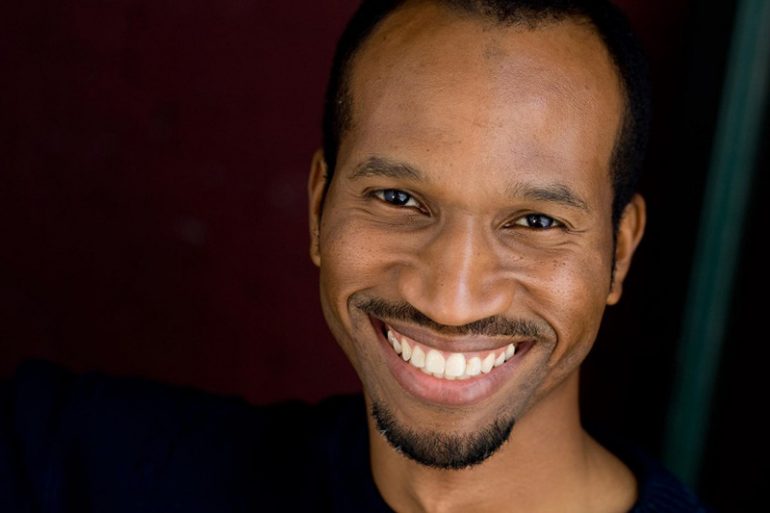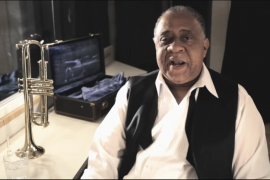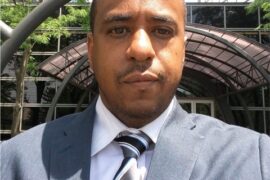Inspired by true events, “Hobo King” tells the story of a homeless man unjustly slain by city police. Enraged, the homeless community attempts to govern themselves in order to give voice to the voiceless. The serious issues presented play against elements of hip hop, jazz, and tap for an experience that has something for everyone.
Written by Congo Square Theatre ensemble member Javon Johnson and directed by ensemble member, Anthony Irons, the play mirrors the universal struggle for all the homeless communities across the nation, and addresses the social dilemma surrounding the current epidemic of homelessness among veterans, patients living with mental illness, and young adults.
“Hobo King” is the first full production for Congo Square’s seventeenth production season, titled Reflections. This season highlights several areas of concern for the African-American community such as: homelessness, youth violence, police brutality, and the resilience of African-Americans in their efforts to survive and thrive in the mist of adversity. These themes were present during the Great Migration, which currently is being celebrated across the City of Chicago, through arts and culture events sponsored by Chicago Department of Cultural Affairs and Special Events.
N’digo recently spoke with both Irons and Johnson to get the inside scoop on this thought-provoking new play and to learn about their respective other upcoming projects.
How did you get your start in acting? Is it what you always wanted to do?
Javon : Initially I wanted to play football but during the collegiate recruiting process I realized I really loved playing the game with guys I grew up with and not so much as a possible professional career. I only had two years of speech and debate experience competing in duo acting and duo interpretation, performing scenes from “A Raisin in the Sun” and “Open Admissions”. Although my partner and I would win first runner-up our junior year then the state championship the following year, I didn’t consider myself an actor. My high school choir teacher saw something in me and to make sure I went to college she arranged a choir scholarship for me to attend S.C. State University despite the fact that I’m not much of a singer. I quickly lost interest in the choir and after several weeks of walking past the big theater building on campus I decided to go in and that was that.
Was there an “aha” moment when you knew for sure that you’d be able to make it in this industry?
Anthony : I took an intro to acting class as an elective in undergrad and was hooked. I changed my major shortly thereafter and haven’t looked back. There were no Aha moments about “making it” in the industry for me per se, though I did know early on that I could play any role anyone handed me. That belief kept me working pretty consistently through undergrad, graduate school and beyond.
Tell us about the play “Hobo King” and what inspired you to write it?
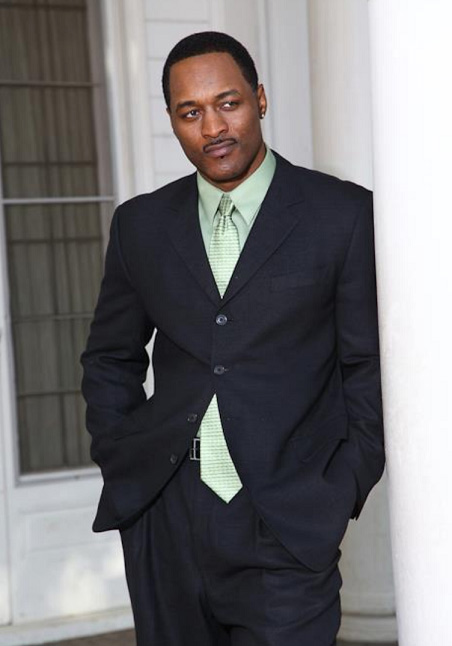
What spoke to you about this play that made you want to jump onboard and take the reins as a director?
Anthony : First of all, I love the lyrical style of “Hobo King”. There is rich poetry in not only the dialogue but also in the action. The prologue had me hooked. Even though there were no lines or music mentioned, it instantly struck a very musical tone to me. Javon has given us a very gritty world inhabited by spiritual beings. There is a lot of pain in the piece from the start, but it’s wrapped in beats and melodies. Even on the page, it pulses with life. My hope is that we create a work that allows beauty to shine through, even in the most dire, if not haunting, of circumstances.
Secondly, this is also a story about a community that doesn’t get a lot of attention. Homelessness is a problem that affects all kinds of people: Mothers, fathers, students, veterans, survivors of abuse and those with mental and/or drug afflictions. Congo Square Theatre strives to give voice to the underrepresented. Lastly, I’m always attracted to art with revolutionary spirit. “Hobo King” has it in spades. There’s nothing more inspiring to me than a group of people banding together against a powerful yet negligent or aggressive authority, for the single purpose of demanding justice and fair treatment.
Being an actor yourself, can you speak on the extra something that directors with an acting background can bring to the director’s chair?
Anthony : The relationship of Actor/Director is summed up in one word: Trust. As an actor, I love directors who establish the world of the play and then trust me enough to let me play in it. Of course, I have to honor the voice of the playwright and give the director what they want, but I also charge myself to go beyond the script. It’s important that directors allow artists the freedom to create. I told each performer at the onset, that “Hobo King” will be a very collaborative endeavor. For instance, we have about a dozen choreographed moments. Some are full on dance numbers, but I chose not to bring in a choreographer. I wanted the choreography to be crafted from the actors’ impulses. I wanted it to be clear that I would lean on their ideas.
As a veteran of film, stage and television are there many subtle differences as far as acting in those various forums that most people may not understand?
Javon : Acting to me is universal across all mediums when it comes to presenting from a place of uncensored, uninhibited and raw honesty. Analytical skills in the craft of acting, script analysis and character development help get you to an honest performance with arc, journey and that tells a story. Outside of that you make technical adjustments to suit the forum in which you are currently working in, be it television, film or the stage.
Who is an actor or artist that you especially look up to?
Javon : Denzel Washington, not for the obvious achievements in his career but for bringing August Wilson to the world on the big screen with passion, respect and integrity.
Anthony : I have a few Industry artists who I have immense respect for. I’d say August Wilson because reading “Fences” was the first time I heard voices leap from the page that sounded like my relatives. Gene Wilder because he is a true comic genius. And lastly Sammy Davis Jr. because that man could literally do everything.
What’s your best advice or words of wisdom for those aspiring to make a mark in theater?
Anthony : My words of advice for aspiring theatre artists are “Don’t wait. Create.” When you feel like opportunities aren’t coming your way fast enough, collaborate with other artists and make your own stuff.
Javon : If your soul and your life will never be fulfilled without being an artist then pursue it relentlessly and don’t be afraid to live. Do not look to other’s success to define your own. Every “no” is an invitation to grow, not a rejection. Be thankful for every “yes” and know that you are worthy and you’ve earned it. Study your craft. Develop your instrument and your mind. It’s all you have.
Any other future projects that fans should be on the lookout for?
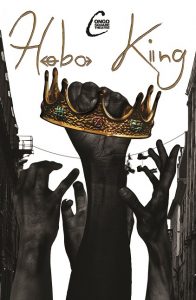 Javon : I have a reoccurring role on BET’S “The Quad” and FOX’s “Shots Fired”, and “Mindhunter” on Netflix. Aside from that, just writing more.
Javon : I have a reoccurring role on BET’S “The Quad” and FOX’s “Shots Fired”, and “Mindhunter” on Netflix. Aside from that, just writing more.
Anthony : I’m revising a musical I wrote called “After the Fires”. It’s a tribute to the many lives affected by the attacks of September 11, 2001. I’m also currently testing a board game that I plan to release within the year. It’s a co-operative role playing game where you team up with other players to end racism. My goal is to continue using or creating art in any form to promote justice, freedom and peace.
“Hobo King” runs through March 5th at the Athenaeum Theatre, located at 2936 N. Southport in Chicago’s Lakeview neighborhood. For more information on the play, please visit www.congosquaretheatre.org


